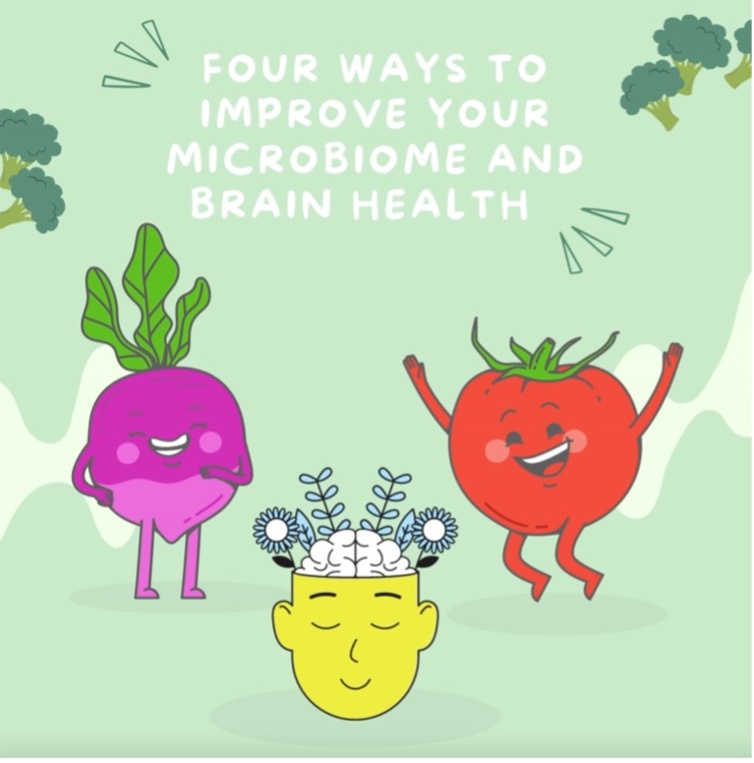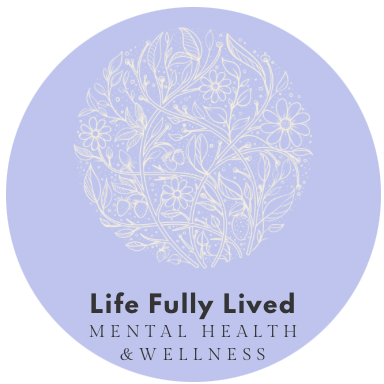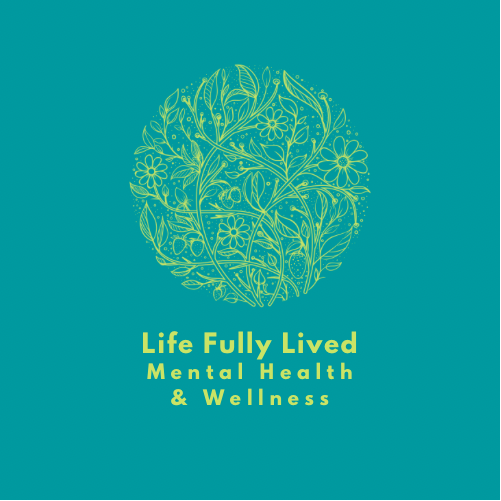Microbiome and Mental Health

By: Hannah Shevitz, Master’s Level Counselor, NCC
Did you know that your gut and brain are in constant communication with one another, and that the health of one, impacts the health of the other? In fact, your gut can even process emotions! You’ve likely heard the saying, “I have a gut feeling,” or “I feel sick to my stomach.” When our body is in flight or fight mode, our digestive system slows down. For individuals who struggle with anxiety, the constant slowing down of the digestion system can lead to a plethora of gut issues. Fortunately, we can improve our brain and gut health by directly caring for our microbiome.
Gut-brain-microbiome Axis
To understand how the gut and brain communicate, you first need to understand the gut-brain-microbiome axis. The vagus nerve is one of the longest nerves in the body and sends bidirectional messages between the brain and the gut. Often, these messages tell us when it is time to activate the stress response or to relax. When we feel anxious or stressed, our body inhibits the digestive system and slows down absorption of nutrients. When we feel relaxed, our body begins to digest normally, our heart rate returns to normal, and we experience feelings of pleasure and calmness. The gut also communicates to the brain. For example, if we drink expired milk and experience a stomachache, our gut communicates with our brain to say that we do not feel well.
What is the microbiome and what does it do?
The microbiome acts as a separate organ in the body and consists of fungi and bacteria that assist in the digestion and absorption of food. Researchers have found that individuals with mental health disorders have a different microbiome profile than individuals without mental health disorders. Having diverse bacteria in the gut helps prevent overgrowth of bad bacteria. Individuals with mental health disorders tend to have more bad bacteria in the gut when compared to individuals without mental health disorders. Fortunately, we can increase the diversity of the microbiome in the following four ways.
Probiotics
Consume probiotics! Probiotics are fermented foods that already contain good bacteria, such as kombucha, kimchi, kefir, and yogurt. Research suggests that we consume probiotics on an empty stomach, since this is when they are the most effective.
Prebiotics
Prebiotics are dietary fibers that our body does not digest. Our gut bacteria live off these dietary fibers. Some bacteria consume fibers from broccoli, while other bacteria live off the bacteria from beets. This is why having a diverse diet of vegetables is essential to improve the health of the microbiome and improve mental health outcomes.
Reduce Inflammation
Inflammation is helpful in small amounts because it helps in fighting infections and healing injuries. However, too much inflammation can be detrimental to your gut and brain health. Some ways to reduce inflammation in the gut is by reducing your intake of sugar, processed foods, and saturated fats. Additionally, it can be helpful to see a dietician or specialist who can help you identify any allergies or food intolerances that may be increasing inflammation in your body.
Reduce Stress
Targeting and reducing your stress levels can positively impact your gut health by decreasing inflammation and improving digestion. There are many avenues for reducing your stress, so it is important to find what works best for you. Some helpful strategies, are entering counseling, engaging in mindfulness exercises, building an exercise routine that fits into your schedule, spending time with friends, and prioritizing selfcare.
Disclaimer: This blog is for educational purposes only and is not intended to replace medical advice.
Sources:
Emma McAdam, LMFT @TherapyinaNutshell

